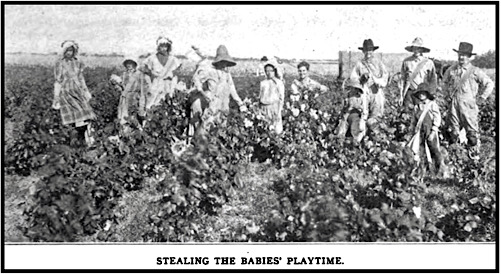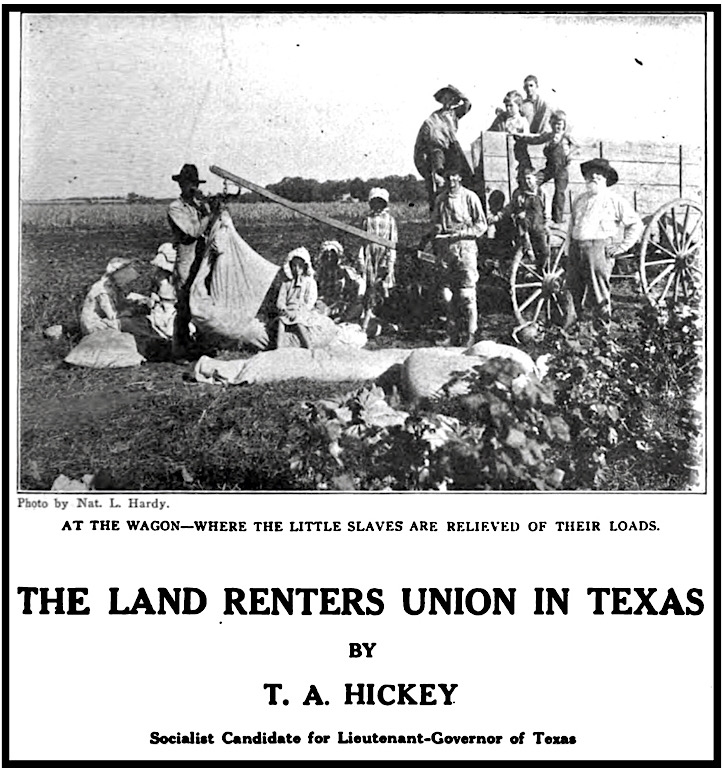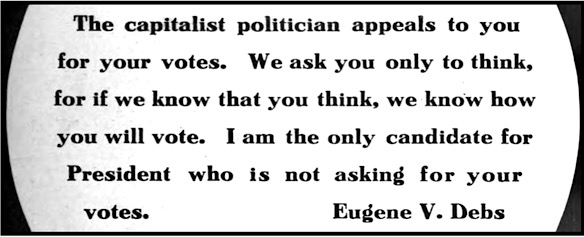 —————
—————
Hellraisers Journal – Saturday November 2, 1912
On the Campaign Trail with Eugene V. Debs, Socialist Party of America
From the International Socialist Review of November 1912:
On the Road With Debs
By
ELLIS B. HARRIS
———-
We Are All Optimistic
HOW can we help it after the realization that not only this is our year, but that all the years to come are to be the fulfillment of Marx’s promise to the working class, inevitable Socialism. And Socialism means the system of co-operation in which man’s inhumanity to man can no longer prevail. Then the countless millions that now mourn shall stand free men erect and smiling in the glorious vision of a universal brotherhood that they, the tireless and unconquerable working class have at last brought to practical realization; a condition in which the evil star of exploitation has set to rise no more. Not only this notion, but the whole world shall be consecrated and glorified in a service of justice, truth and love; when property right shall be the right of all the workers to possess all property in the means of production and distribution; and then control it so that man may freely enjoy life and liberty.
Time was when nearly if not quite all of the people could be fooled most if not all of the time by a system of education that teaches that capital is prior to labor; that it belongs to a sort of philanthropic organization that gives employment to the working class and is therefore necessary as an initiative to labor; that being based on private ownership and being the source of the very existence of man, it is therefore more than man and man must be subservient to it.
On this sort of education we have builded a heartless commercialism that is sapping the life blood of the nations to fertilize and make more productive the private property of a master class, property held to be more sacred than the mothers and children of all the races of men on whom this ruling class subsist.
Comes the propaganda of Socialism with the new education based on history, evolution and a true political economy; teaching the unimpeachable laws of value, industrial evolution and economic determinism; making plain to the workers the ages of class struggle that have forced them continually to fight for life against the ruling class and that shall ultimately unite the toiling masses into one great union and a solidarity of comradeship that shall win a final and lasting triumph for all mankind.
To fully realize and appreciate the success of our ceaseless campaign, one cannot confine himself to a view of any particular locality. He must have every opportunity to come in direct touch with it throughout all of the states. One must see the awakening and hear the collective voice of the masses assembled as we have seen them, east, west, north and south; and mingle with them amidst such inspiring scenes as that of Madison Square Garden, New York, and Philadelphia Convention Hall, where twenty thousand people stood beneath a very sea of waving scarlet banners and shouted themselves hoarse for the revolution and Socialism.
Heartily I wish that every comrade might share this trip with the Debs party. That they might touch hands with and feel the heart throb, through that touch of the nation’s working class. Spirits in revolt, thousands of them, class conscious, self-sacrificing and indefatigable.
[Debs asserts:]
One fact in which we may all find comfort, no matter how dark our skies may seem, is that the common heart of humanity is sound and beats true.
And nothing proves the assurance so well as the experiences of our campaign tour, where the rhythmic pulse of the collectivity is made manifest in the desire to hear some message of Socialism.
Here is the rush and the crush of the common fellowship; the good natured crowding of happy men and women that feel they are akin in this, the lobby of a brighter future. I say happy, for here at last they seem to realize that in their unity lies the achievement of every desire and effort for an abundant and happy life. They are not all Socialists by any means, but they are all interested in our message. They are all responsive to the principles of our party as they fall from the lips of its eloquent advocate, comrade Debs.
This is what we see on every hand, a thoroughly dissatisfied working class in every state in the Union, exploited by a plutocracy of wealth, which commands all the powers of government. The struggle for existence has at last become unbearable to the great majority.
The seed of Socialism that we have sown and are still sowing is coming to blossom in the great heart of working man and woman and no one who has seen it in all its phases of development can ever doubt the harvest yield.
[Emphasis added.]

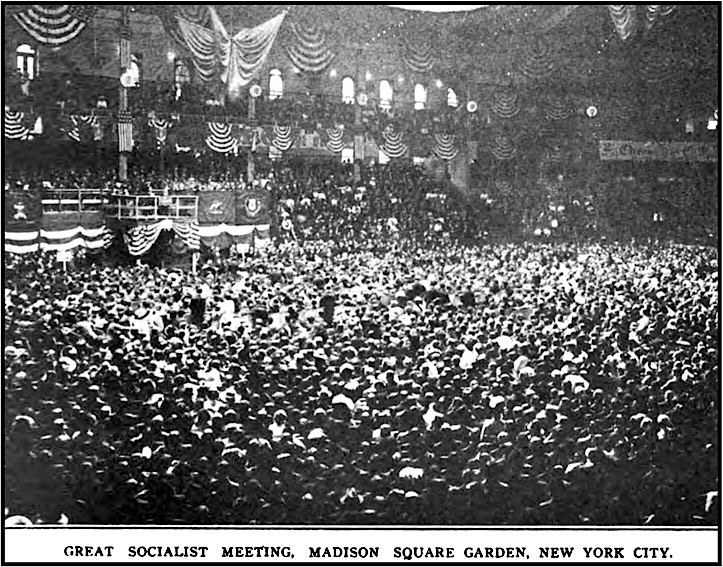
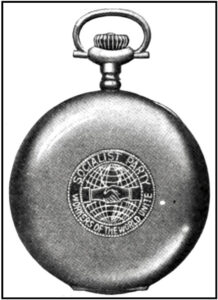
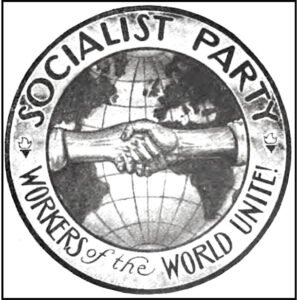
 —————
—————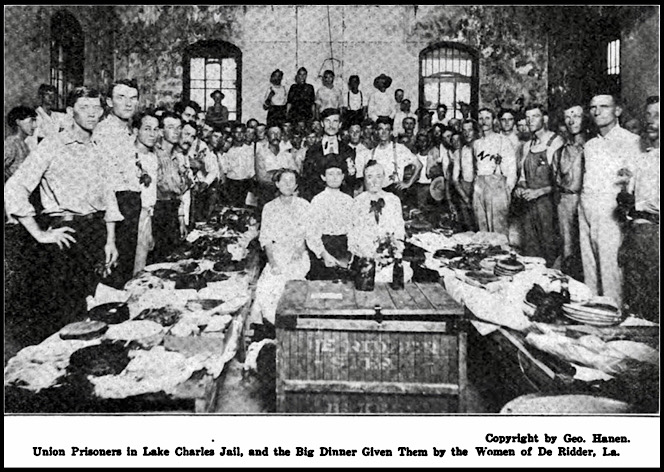
 —————
—————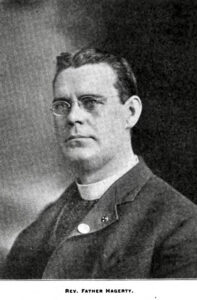
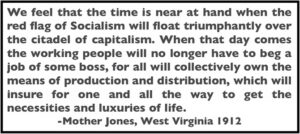 —————
—————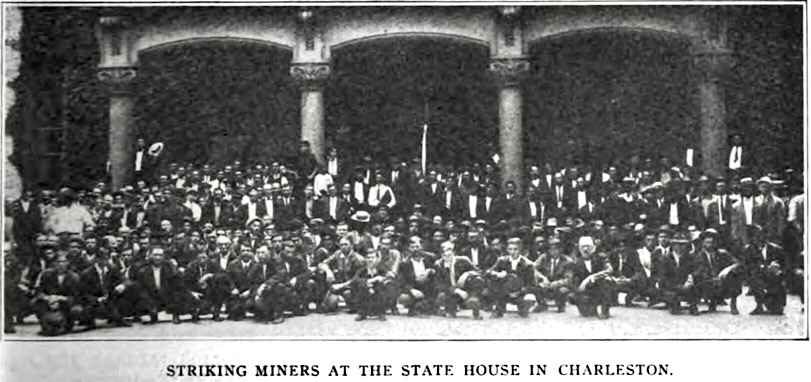
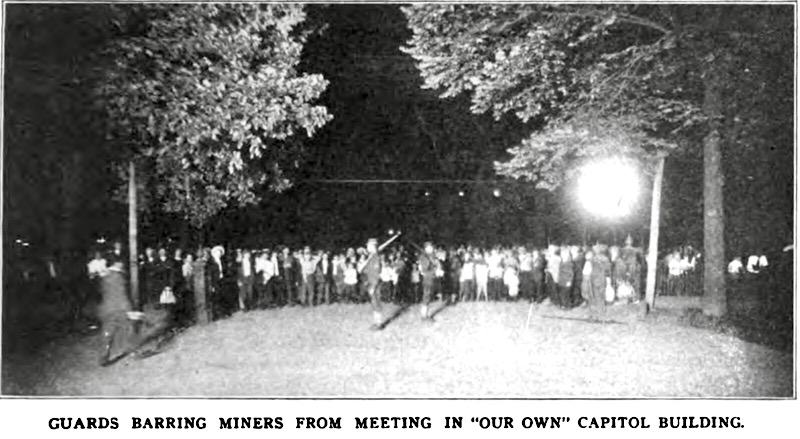
 —————
—————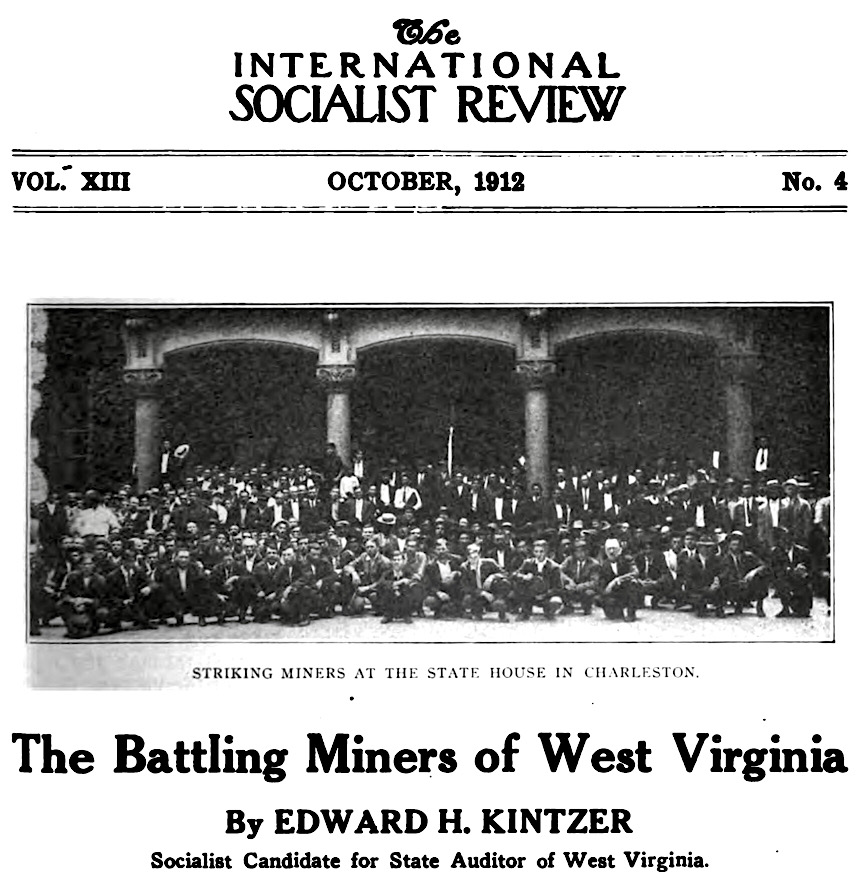 ———-
———-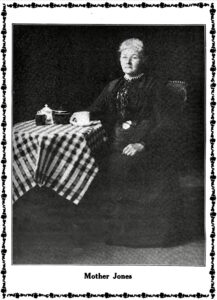
 —————
—————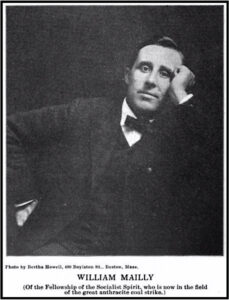
 —————-
—————-
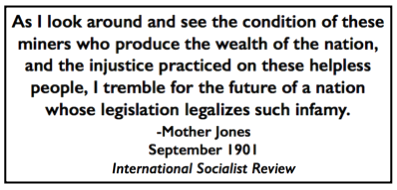 —————
—————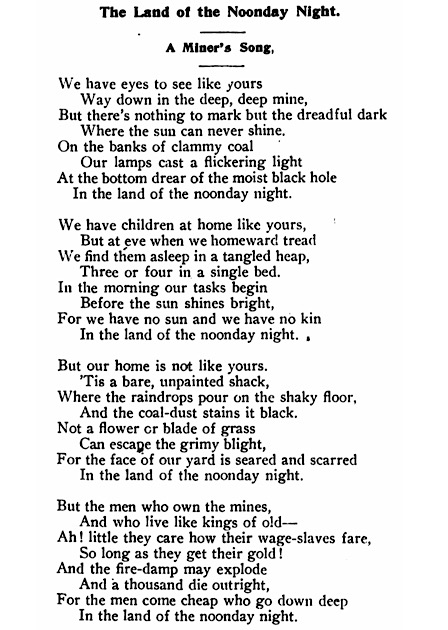
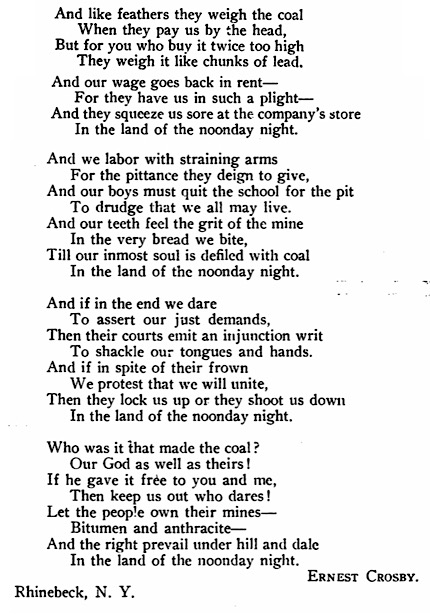
 —————
—————